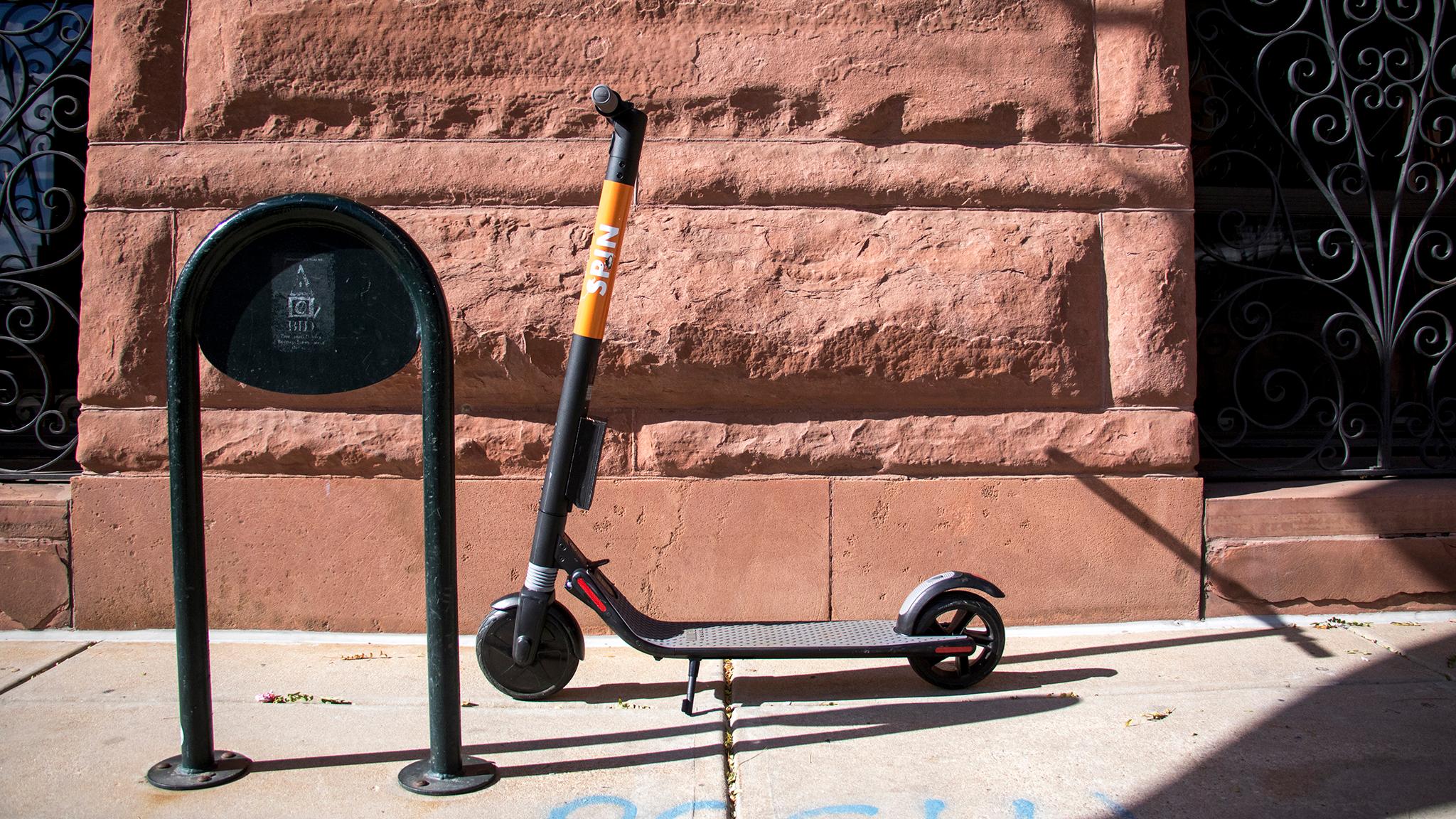With the deployment of 250 Spin scooters this morning and another 100 this weekend, the final wave of the dockless electric scooter invasion of Denver will be complete.
That's a grand total of 1,750 mobility machines humming around the city and waiting for us in jaunty little lines next to the bus stops each morning. It should have been more scooters, but as we learned shortly after we published a story about Razor's launch in Denver, Zagster won't be here anytime soon, despite being on Denver's list of permitted companies.
Anyway, the Spin scooters will start out in downtown neighborhoods so the company can "get a good understanding of the core," Spin vice president of business Ben Bear said. The next 100 will roll out in underserved "opportunity areas" identified by the city.
Pricing- and function-wise, Spin scooters are about the same as the others. They cost $1 to activate and 15 cents per minute of riding. Bear said safety is a big priority and users will need to read through and agree to rules of the road, which are also written on the scooters. Spin is also offering to give helmets to people who request them.
"We see the biggest barrier to growth for these services longterm as people really feeling safe riding them in denser, urban and campus areas," he said.
And to that effect, they'll be watching as Denver tries to figure out this "toy vehicle" thing.
"One thing we’re eager to see with this pilot is how it works out with current state regulations that make them toy vehicles and say that you have to ride on the sidewalk," Bear said. "That’s certainly opposite of things we’ve seen work best in other cities where they ride in bike lanes. ... I don’t know what enforcement has been, but it’s kind of a silly regulation."
Denver is one of 11 cities with Spin scooters, and the company tends to aim for smaller markets. Bigger cities on the list include Washington D.C., Detroit and Austin.
Part of that is because Spin has exclusive deals with a few cities, including Lexington, Kentucky, and Coral Gables, Florida, where they're only permitting one company for now "so they don’t get overrun," Bear said. The bigger reason is that Spin waits for permits before entering a city.
"We never launch in a city without a permit. Some of the other companies have a different approach, sort of an Uber approach," Bear said. "The approach that we’re taking -- we’re not opting out of the big cities, but a lot of the big cities haven’t introduced the permitting process."
Denver's dockless mobility invasion (umbrella invasion of the dockless e-scooter invasion) isn't over yet. We're still expecting 500 dockless bikes from Lyft. Plus, Bear says there's still room for more.
"Based on the analysis that we’ve done, we really think there is room for more," he said. "That’s why, if you look at the industry as a whole right now, there’s a lot more demand than is allowed for with these initial caps, provided the systems are rolled out in a smart way."
Keep watching the skies streets.













